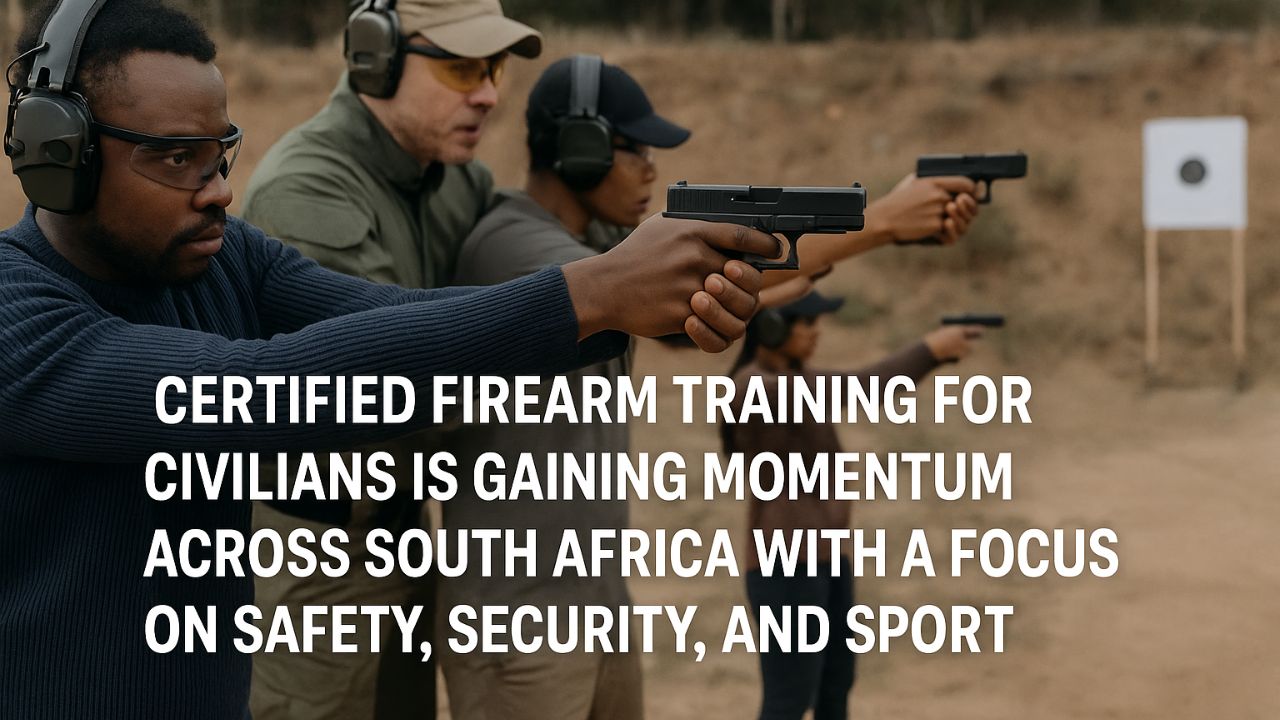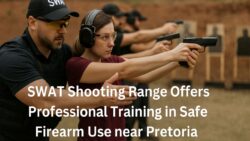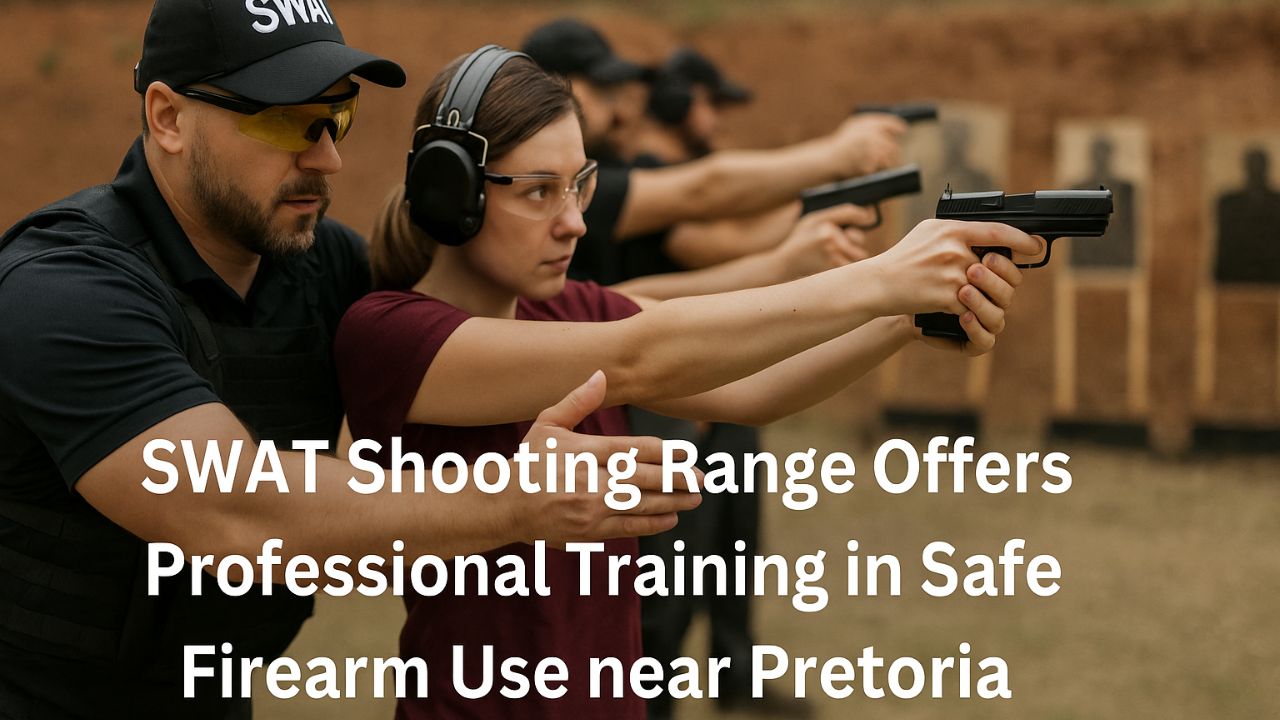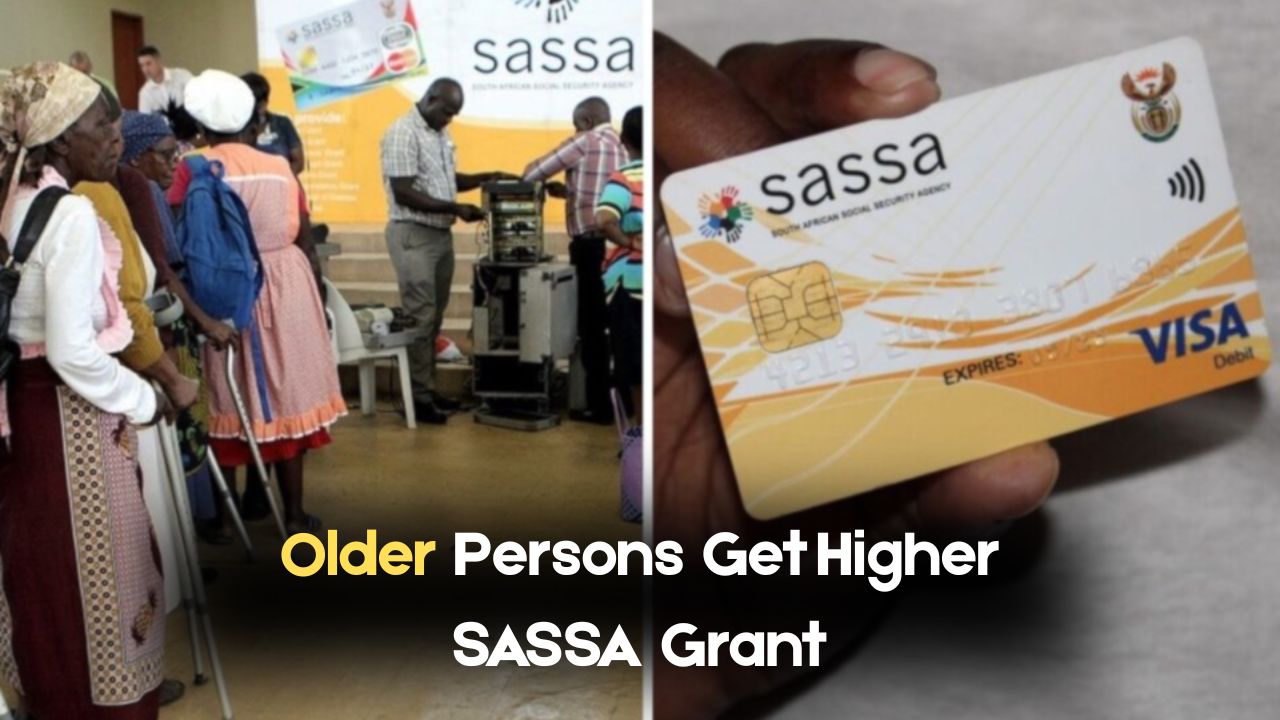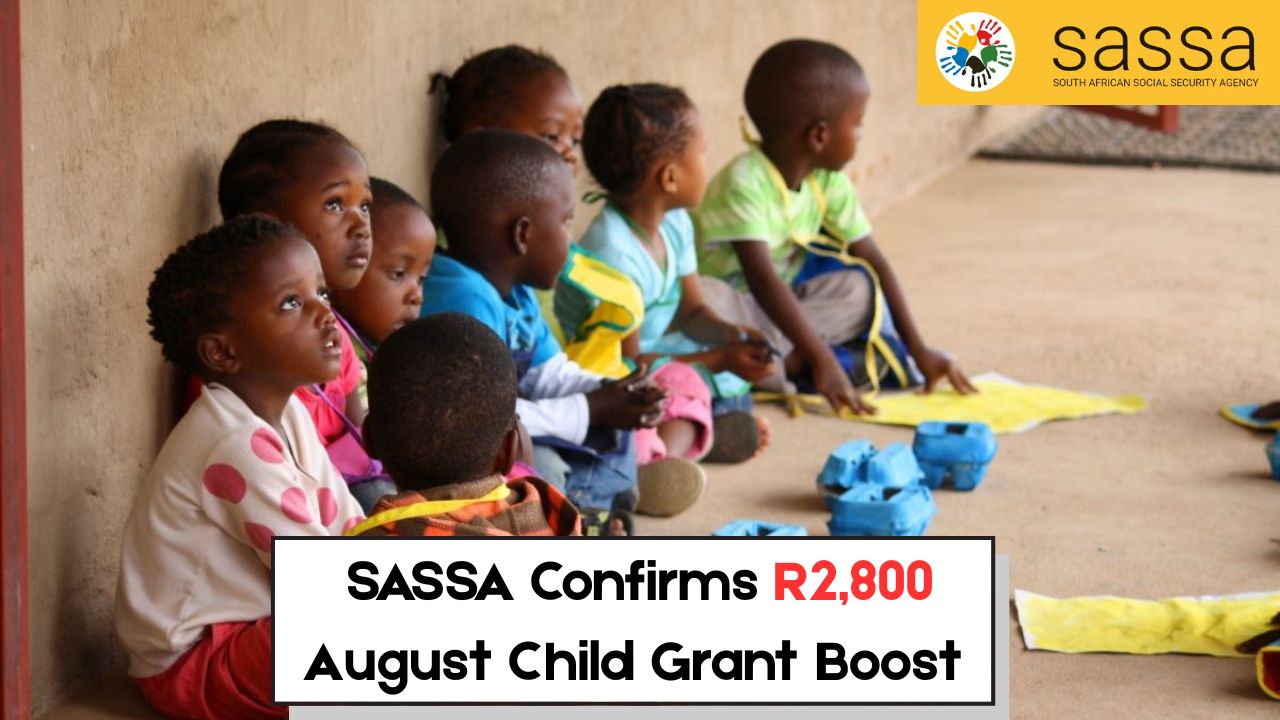Certified Firearm Training – South Africa is witnessing a rising trend among civilians enrolling in certified firearm training programs. With increasing concerns over personal safety, crime prevention, and the growing popularity of sport shooting, firearm training has evolved into a serious discipline. These certified courses not only empower individuals with responsible gun ownership knowledge but also promote safe handling, legal awareness, and ethical usage of firearms. Firearm training is no longer restricted to security professionals or law enforcement. Ordinary citizens, including business owners, farmers, women, and sports enthusiasts, are now participating in structured programs to improve their personal and community safety. Let’s explore why this movement is gaining pace and how civilians can benefit from certified firearm education.
Why Firearm Training Is Becoming Popular Among Civilians
Certified firearm training has become more accessible and essential for various reasons:
- Rising crime rates in urban and rural areas
- Empowerment through self-defense, especially for women
- Government-licensed programs offered by accredited institutions
- Popularity of competitive shooting sports
- Improved awareness of legal firearm responsibilities
These factors have made it important for civilians to learn how to handle firearms properly and legally.
Key Components of Certified Firearm Training Programs
Most accredited firearm training institutions in South Africa follow a structured syllabus that includes:
- Basic Firearm Safety Rules
- Understanding the Firearms Control Act
- Handling, Loading, and Unloading a Firearm
- Shooting Range Practice
- Maintenance and Storage Guidelines
- Situational Awareness and Judgment
These components ensure that each participant not only learns to shoot but also understands the ethical, legal, and technical responsibilities of firearm ownership.
Breakdown of a Standard Civilian Firearm Course
| Module | Description |
|---|---|
| Safety Fundamentals | Covers the 4 universal rules of firearm safety |
| Firearm Types | Identifying handguns, shotguns, and rifles |
| Shooting Techniques | Proper stance, grip, aiming, and trigger control |
| Firearm Law | Legal do’s and don’ts under SA law |
| Live Fire Assessment | Real shooting test under instructor supervision |
| Firearm Storage | Securing weapons at home and during travel |
| Maintenance Basics | Cleaning and inspection protocols |
| Situational Awareness | Reading environments and responding effectively |
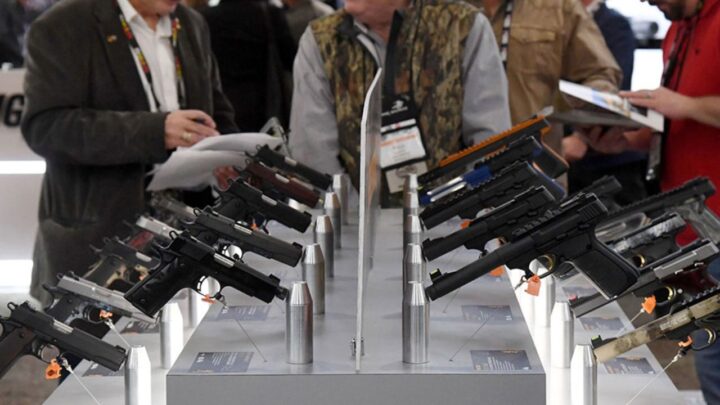
Certified Training Improves Safety and Confidence
One of the most significant advantages of undergoing firearm training is the boost in confidence it offers to individuals. Trained civilians are less likely to mishandle a weapon or use it irresponsibly. Certified training leads to:
- Better self-discipline and restraint
- Effective response during emergencies
- Reduction in accidental discharges
- Promotion of legal firearm culture
This is crucial in South Africa, where illegal firearm activity remains a challenge.
Testimonials from Civilian Trainees
| Name | Background | Experience with Training |
|---|---|---|
| Thabo M. | Small Business Owner | “I feel safer and more responsible with my firearm.” |
| Ayesha K. | School Teacher | “Empowering and enlightening — I recommend it!” |
| Johan S. | Farmer in Limpopo | “I now know how to protect my family and farm better.” |
| Nandi B. | Sport Shooter | “Helped me win my first local competition.” |
Firearm Training as a Growing Sport
Sport shooting is gaining popularity in South Africa, thanks to the presence of regulated clubs and national-level competitions. Certified training is mandatory for most competitive shooters, and the sport promotes:
- Discipline and mental focus
- Precision and control
- Community bonding through clubs
- Physical and mental wellness
The South African Practical Shooting Association (SAPSA) and other clubs have noted a 30% increase in civilian participation over the last 2 years.
Legal and Ethical Considerations for Firearm Ownership
Owning a gun in South Africa comes with strict legal obligations under the Firearms Control Act. Trained individuals are taught about:
- How to apply for a competency certificate
- Maintaining safe and secure firearm storage
- Responsibilities during transport or display
- Legal use in self-defense situations
- When not to use a firearm
Ignorance of these laws can lead to arrests, fines, or permanent bans on firearm ownership.
Important Legal Reminders for Gun Owners
- Always carry your firearm license and ID when armed
- Never discharge a weapon in a public space unless lawfully justified
- Store ammunition and guns separately under lock
- Renew your license before it expires
- Report a stolen or lost firearm within 24 hours
Where to Get Certified Firearm Training in South Africa
Numerous government-recognized firearm training centers operate under SAPS regulation. Popular regions include:
- Gauteng: Johannesburg, Pretoria
- Western Cape: Cape Town, Stellenbosch
- KwaZulu-Natal: Durban, Pietermaritzburg
- Eastern Cape: Port Elizabeth, East London
Top SAPS-Accredited Firearm Training Providers
| Training Center | Location | Specialization |
|---|---|---|
| Tactical Defence Institute | Johannesburg | Self-defense, sport shooting |
| Bull’s Eye Academy | Cape Town | Civilian and VIP training |
| Secure Aim Training | Durban | Beginners and rural defense |
| Range Ready Academy | Pretoria | Professional and competitive use |
Certified firearm training is more than just learning to shoot—it’s about responsible ownership, legal education, and personal growth. As crime concerns rise and the sport continues to thrive, civilians in South Africa are realizing that proper training is not optional—it’s essential. Whether for safety, sport, or peace of mind, firearm education is an investment in security and self-empowerment.
FAQs
1. Do I need a firearm license to start training?
No, you can begin basic training without a license, but you will need it to own or carry a firearm legally.
2. Is firearm training expensive in South Africa?
Costs vary, but basic civilian training can range between R1,000 and R3,500 depending on the center and course depth.
3. Can women and teenagers undergo certified firearm training?
Yes, many centers offer special programs for women and youth above the legal age (16+ with guardian consent).
4. How long does it take to complete a certified course?
Basic courses usually take 1–3 days, while advanced and sport courses may take several weeks.
5. What happens if I fail the live fire assessment?
You will be offered additional training and a chance to retake the assessment after further practice.
